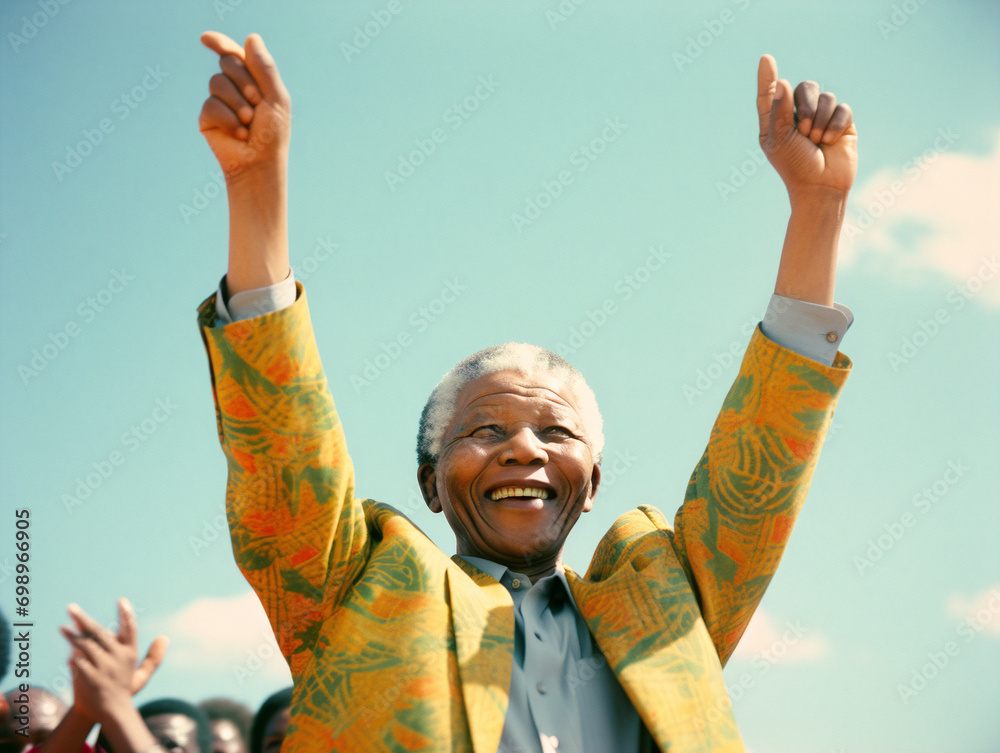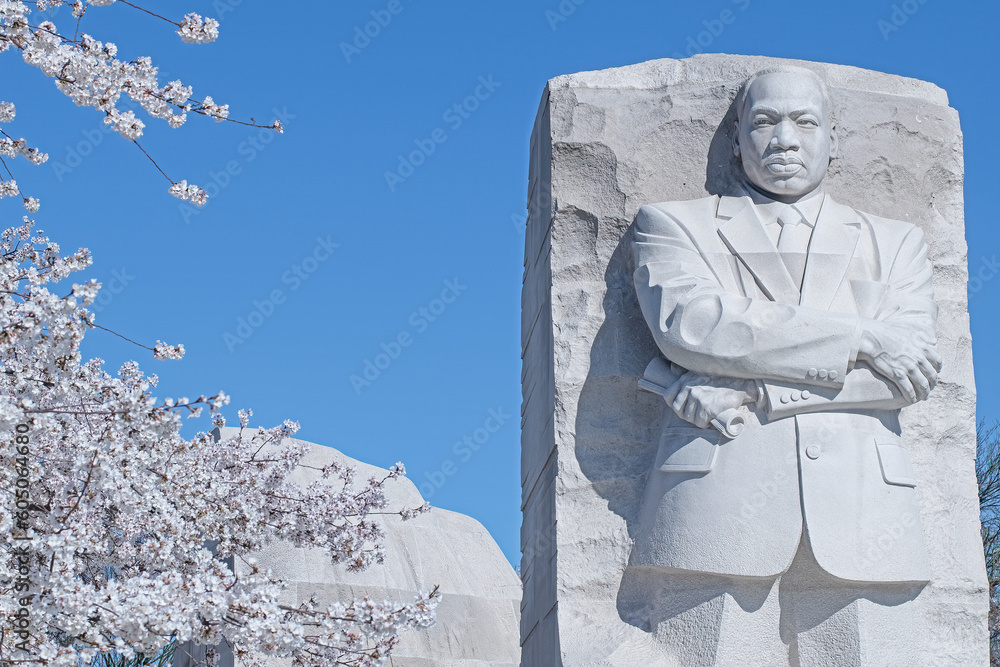
Leadership is a catalyst for change, and transformational leaders stand out as architects of progress. These leaders create a compelling future vision by inspiring and empowering their followers and mobilizing collective efforts to achieve it. Bass (1990) defined transformational leadership as encompassing four key dimensions: idealized influence, inspirational motivation, intellectual stimulation, and individualized consideration. These elements enable leaders to transcend traditional hierarchical approaches, fostering collaboration, innovation, and shared purpose within their organizations and communities.
This article explores the stories and strategies of transformational leaders like Nelson Mandela, Malala Yousafzai, Dr. Martin Luther King Jr., and Indra Nooyi. Through their leadership, they have redefined societal norms, challenged systemic inequities, and driven meaningful change across political, educational, social, and corporate spheres. In addition, insights from recent research provide a deeper understanding of how transformational leadership principles adapt to contemporary challenges, offering guidance for aspiring leaders to make a lasting impact.
Nelson Mandela: Champion of Reconciliation and Unity

Nelson Mandela’s leadership during South Africa’s transition from apartheid to democracy epitomizes transformational leadership. Mandela displayed idealized influence by embodying integrity and moral fortitude, earning the trust and admiration of his followers. His unwavering commitment to justice and equality became a beacon of hope for millions, signaling a break from a history of systemic oppression (Mandela, 2008).
Mandela’s vision of a united South Africa motivated citizens to embrace reconciliation over revenge. His decision to establish the Truth and Reconciliation Commission (TRC) exemplified his commitment to healing a fractured nation. The TRC provided a platform for victims and perpetrators of apartheid-era violence to share their stories, promoting understanding and forgiveness as central to rebuilding trust (Tutu, 2009). This initiative, rooted in Mandela’s philosophy of Ubuntu—“a person is a person through other persons”—emphasized collective healing and underscored the interdependence of all South Africans (Koshal, 2024; Gade, 2011).
Through intellectual stimulation, Mandela challenged entrenched beliefs about race and justice. His speeches and policies encouraged South Africans to envision a future beyond racial divisions, fostering a collective identity centered on shared values and aspirations (Mandela, 2008). Mandela’s ability to inspire transformative thinking extended beyond political institutions and redefined social and economic structures. By prioritizing equitable resource distribution and inclusive governance, he laid the groundwork for sustainable progress (Lodge, 2006).
Mandela’s individualized consideration for diverse communities further demonstrated his leadership prowess. He recognized the unique needs and experiences of South Africa’s various racial and ethnic groups, often engaging directly with local leaders and communities (Carlin, 2008). His willingness to listen and adapt strategies based on these interactions strengthened his connection with citizens and ensured his policies addressed grassroots concerns.
Additionally, Mandela’s resilience served as a testament to his transformative impact. His 27 years in prison, marked by physical and emotional hardship, deepened his resolve to pursue justice without bitterness (Sampson, 2012). Upon his release, Mandela’s ability to extend forgiveness to his former captors solidified his moral authority and set a powerful example for reconciliation. His insistence on inclusivity while drafting South Africa’s new constitution further cemented his legacy as a unifying figure committed to creating a democratic society (Sparks, 1996).Mandela’s emphasis on the philosophy of Ubuntu—a cultural tenet rooted in mutual respect and compassion—resonates globally as a model for leadership. By integrating traditional African values with modern democratic principles, Mandela’s leadership bridged cultural divides and inspired movements for justice worldwide. His enduring legacy continues to influence contemporary discussions on equity, inclusion, and social cohesion (Koshal, 2024; Gade, 2011).
Malala Yousafzai: Advocate for Education and Gender Equality

Malala Yousafzai’s transformational leadership emerged from her resilience and advocacy for education despite adversity. Born in Mingora, Pakistan, Malala grew up under the shadow of the Taliban, who vehemently opposed the education of girls. Her early activism, including writing a blog under a pseudonym for the BBC, highlighted the challenges faced by girls in accessing education in the Swat Valley. This courage began her journey as a global advocate for education (Lamb& Yousafzai, 2013).
Malala’s resolve was tested when she survived a near-fatal assassination attempt by the Taliban in 2012. Shot in the head while on a school bus, her recovery became a symbol of her unyielding commitment to her cause. Her determination inspired millions worldwide and demonstrated her capacity for inspirational motivation. In her speeches and writings, Malala paints a compelling vision of a world where every child has the right to education, emphasizing that education is the most powerful weapon against poverty, extremism, and inequality (Ullah & Farooq, 2024).
Through intellectual stimulation, Malala challenges the deeply ingrained patriarchal and cultural norms that marginalize women and girls. Her advocacy emphasizes not just the importance of access to education but also the transformative power of education in empowering individuals and reshaping societies (Harjani & Saraswati, 2024)). Malala’s foundation, the Malala Fund, has further institutionalized her efforts by supporting local activists and organizations in promoting education in conflict-affected regions. The fund has launched initiatives in Afghanistan, Nigeria, and Syria, where education for girls remains an elusive goal (Lamb & Yousafzai, 2013).
Malala’s individualized consideration for the struggles of others is evident in her inclusive approach to advocacy. She often highlights personal stories of girls denied education, using these narratives to humanize the issue and galvanize global action (Harjani & Sarawati, 2024; Ullah & Faroq, 2024). Her efforts extend beyond Pakistan, addressing global educational disparities, particularly in regions affected by conflict and poverty. Her collaboration with international organizations like the United Nations has helped prioritize education for girls on the global agenda (Ullah & Faroq, 2024).
Her resilience in the face of criticism—particularly from conservative factions within her home country—underscores her steadfast commitment to her mission. Despite being accused by some of being a “Western agent,” Malala’s focus remains unwavering: to ensure that every girl has the opportunity to learn and thrive. Her autobiography, I Am Malala, recounts her journey and serves as a rallying cry for gender equality and education reform (Lamb& Yousafzai, 2013; Harjani & Sarawati, 2024).
Malala’s leadership transcends her personal story, inspiring global movements for change. As the youngest-ever Nobel Peace Prize laureate, her work highlights the intersection of youth leadership, gender equality, and educational advocacy. Her influence has reshaped global conversations around the rights of women and girls, establishing her as a transformative figure in modern history (Harjani & Sarawati, 2024; Ullah & Farooq, 2024).
Dr. Martin Luther King Jr.: Visionary of Equality and Justice

Dr. Martin Luther King Jr.’s leadership in the civil rights movement transformed American society by addressing systemic racism and inequality. King displayed idealized influence by embodying moral courage and unwavering commitment to justice. As a preacher and public intellectual, he brought spiritual depth and ethical grounding to the fight for civil rights, ensuring his vision resonated across diverse audiences (Carson, 2001).
King’s speeches, particularly “I Have a Dream,” reflect his capacity for inspirational motivation. He articulated a vision of racial harmony and justice that transcended the immediate struggles of the 1960s. By invoking the principles of equality enshrined in the Declaration of Independence and the Bible, King mobilized individuals to join the civil rights movement, fostering a sense of collective purpose and moral urgency (Jones, 2005; Jones & Connelly, 2012). His ability to connect biblical teachings with democratic ideals allowed him to appeal to religious and secular audiences, amplifying the movement’s reach (Carson, 2001).
Through intellectual stimulation, King reframed the narrative around civil rights. He introduced nonviolent resistance as a transformative strategy, drawing inspiration from Mahatma Gandhi and Christian theology. This approach challenged segregation’s legal and social foundations and invited deep reflection on the moral imperatives of justice and equality (King, 2010; Jones & Connelly, 2012). His leadership in initiatives like the Montgomery Bus Boycott and the Birmingham Campaign demonstrated the power of organized, peaceful protest to effect systemic change (Abernathy, 1989).
King’s individualized consideration was evident in his efforts to connect personally with marginalized communities. He visited rural towns, spoke in small churches, and marched alongside workers and activists, ensuring every voice was heard (Hines 1985). His advocacy extended beyond racial justice to economic equality, exemplified by the Poor People’s Campaign. This initiative highlighted the intersections of race and poverty, advocating for policies that addressed the systemic inequities faced by African Americans and other marginalized groups (Honey, 2011).
Despite facing imprisonment, physical threats, and eventual assassination, King’s resilience underscored his transformative impact. His ability to maintain hope and inspire others despite adversity remains a hallmark of his leadership. King’s emphasis on nonviolence and inclusivity has left an enduring legacy, influencing justice movements worldwide (Carson, 2001; Jones & Connelly, 2012).
King’s work is a testament to the transformative power of visionary leadership rooted in moral conviction. By bridging the divides of race, class, and religion, he laid the groundwork for a more just and equitable society. His legacy serves as a blueprint for addressing the enduring challenges of inequality and discrimination (Honey, 2011; Carson, 2001).
Indra Nooyi: Transforming Corporate Leadership

Indra Nooyi’s tenure as the CEO of PepsiCo (2006–2018) marked a paradigm shift in corporate leadership, emphasizing integrating sustainability and social responsibility into business strategy. Nooyi’s transformational leadership redefined the role of a corporate leader by aligning the company’s goals with the well-being of its stakeholders—employees, consumers, communities, and the environment (Nooyi & Govindarajan, 2020).
Visionary Leadership with “Performance with Purpose”
Nooyi introduced the “Performance with Purpose” (PwP), a strategic initiative to balance financial growth with societal and environmental sustainability. Under her leadership, PepsiCo focused on four pillars:
- Financial Sustainability: Delivering superior financial returns while maintaining long-term viability.
- Human Sustainability: Transforming the product portfolio by reducing sugar, salt, and fat in existing offerings while increasing healthier, more nutritious alternatives.
- Environmental Sustainability: Minimizing PepsiCo’s carbon footprint, conserving water, and addressing plastic waste in its packaging processes.
- Talent Sustainability: Empowering women and underrepresented groups within the company and the broader community, reflecting her belief in inclusive leadership.
This comprehensive framework demonstrated her intellectual stimulation as a leader, challenging traditional business models and prioritizing short-term profits over long-term impact (Nooyi & Govindarajan, 2020). Nooyi’s ability to anticipate global trends, such as the growing demand for healthier food options and corporate accountability, placed PepsiCo at the forefront of a new era in business.
Inspirational Motivation: Driving Change Against Resistance
Nooyi’s vision inspired profound cultural and operational changes within PepsiCo. Despite facing resistance from stakeholders accustomed to the company’s historical focus on indulgent products, Nooyi persisted in championing a balanced portfolio. She invested heavily in research and development, nearly triple its budget, to innovate healthier products while maintaining profitability (Nooyi & Govindarajan, 2020). Her ability to articulate a compelling vision of societal and corporate benefits energized her teams, rallying them around shared goals.
Moreover, Nooyi was a masterful communicator, consistently engaging with employees, investors, and the public to reinforce her vision. She often emphasized the interconnectedness of financial performance and social responsibility, stating, “We need to change how we make money—not just give away some of the money we earn” (Nooyi & Govindarajan, 2020).
Individualized Consideration: Advocating for Diversity and Inclusion
Nooyi’s leadership style was deeply personal and empathetic. She was renowned for her efforts to connect with employees individually, famously writing letters to their families to acknowledge their contributions to PepsiCo’s success. This individualized consideration fostered a culture of mutual respect and belonging within the organization (Nooyi & Govindarajan, 2020).
She also prioritized diversity and inclusion, significantly increasing the representation of women and minorities in senior leadership roles. By 2018, women held 39% of PepsiCo’s managerial positions, a testament to her commitment to empowering underrepresented groups (Nooyi & Govindarajan, 2020). Her advocacy extended beyond the company, as she became a vocal proponent of gender equity in corporate leadership globally.
Long-Term Impact and Legacy
Under Nooyi’s leadership, PepsiCo achieved remarkable financial growth. From 2006 to 2017, the company’s net revenue increased by 80%, and its stock consistently outperformed industry benchmarks. Simultaneously, PepsiCo reduced water use by 25%, expanded access to safe drinking water for over 22 million people, and significantly reduced greenhouse gas emissions and waste (Nooyi & Govindarajan, 2020).
Nooyi’s emphasis on sustainability and inclusivity transformed PepsiCo into a model for corporate citizenship. Her legacy influences leaders worldwide, proving businesses can thrive while serving broader societal needs.
Lessons from Nooyi’s Leadership
Indra Nooyi’s leadership exemplifies the transformative power of aligning corporate strategies with ethical and sustainable principles. Her ability to inspire change, navigate resistance, and foster a culture of inclusivity demonstrates the profound impact of transformational leadership in the corporate world. Future leaders can draw from her example to build financially successful organizations while contributing positively to society.
Expanding Perspectives: Insights from Recent Research

Recent research highlights the evolving understanding of transformational leadership and its relevance across diverse organizational and societal contexts. Scholars emphasize its adaptability in addressing complex challenges such as rapid technological change, shifting societal expectations, and increasing global interconnectivity. This section explores key insights from contemporary studies, underscoring the critical role of transformational leadership in fostering innovation, inclusion, and resilience (Eaton et al., 2024).
The Role of Transformational Leadership in Organizational Change
Research by Coleman (2018) underscores how transformational leaders inspire employee engagement and commitment during periods of rapid organizational change. By fostering a culture of trust and authenticity, these leaders enable teams to adapt to uncertainty and overcome resistance. Coleman’s findings reveal that transformational leadership is particularly effective in environments where employees feel supported through authentic connections and resource provision.
Similarly, McCarthy et al. (2024) examine the role of transformational leadership in digital transformation. Their research highlights how leaders who exhibit intellectual stimulation encourage employees to embrace technological innovation and adopt new skill sets. By fostering a growth-oriented mindset, transformational leaders empower their teams to navigate the complexities of the digital era while maintaining organizational agility.
Inclusivity and Democratic Foundations
Eaton et al. (2024) revisit the democratic underpinnings of transformational leadership, exploring its role in fostering participatory and inclusive environments. Their study argues that transformational leadership is inherently aligned with democratic principles, emphasizing shared vision, collective engagement, and the empowerment of diverse voices. This perspective is particularly relevant in organizational and societal contexts striving for equity and inclusion.
For example, transformational leaders in educational institutions have been shown to enhance organizational commitment by fostering cultures of inclusivity and shared purpose (Rojak, 2024). These leaders motivate employees and address systemic inequities, enabling institutions to achieve long-term sustainability and effectiveness.
Cross-Cultural Considerations
The universality of transformational leadership is a recurring theme in the literature. However, recent studies also point to the importance of cultural nuances. Koshal (2024) emphasizes that cultural values significantly influence the application and perception of transformational leadership. For instance, the concept of Ubuntu in African leadership traditions aligns closely with transformational leadership’s emphasis on community and interdependence. Leaders who integrate cultural values into their approach can create more meaningful and sustainable connections with their teams and communities.
Addressing Global Challenges
Transformational leadership is increasingly seen as essential for addressing global challenges such as climate change, public health crises, and social inequality. Nooyi & Govindarajan (2020) highlight how leaders in the corporate sector can adopt transformational strategies to balance profitability with sustainability. By integrating environmental goals into core business strategies, transformational leaders demonstrate how organizations can contribute to broader societal goals while maintaining competitive advantage.
Moreover, Khalilullah & Farooq (2024) explore how transformational leaders like Malala Yousafzai utilize their platforms to advocate for systemic change. By addressing global issues such as gender inequality and access to education, these leaders inspire collective action and create pathways for meaningful progress.
Future Directions for Research and Practice
While the benefits of transformational leadership are well-documented, scholars also highlight areas for further exploration. For instance, Eaton et al. (2024) call for a deeper analysis of the intersection between transformational leadership and emerging technologies, such as artificial intelligence and machine learning. Similarly, McCarthy et al. (2024) suggest that future research should investigate how transformational leadership can mitigate risks associated with rapid innovation, such as employee burnout and organizational instability.
As transformational leadership continues to evolve, its adaptability and relevance across diverse contexts remain central to its appeal. By fostering trust, innovation, and inclusion, transformational leaders are uniquely positioned to address the complexities of the modern world and drive sustainable progress.
Conclusion
The common thread among transformational leaders is their ability to inspire, challenge, and support their followers while pursuing a vision that transcends personal or organizational gains. Whether leading nations, movements, or corporations, these leaders demonstrate the profound impact of transformational leadership on society. Through their idealized influence, they build trust and moral authority; through inspirational motivation, they energize others to strive toward a greater purpose; through intellectual stimulation, they foster innovation and adaptability; and through individualized consideration, they connect meaningfully with the unique needs of their followers.
In today’s interconnected and rapidly changing world, the principles of transformational leadership are more relevant than ever. From addressing global challenges such as climate change and social inequality to navigating organizational complexities in the digital age, transformational leaders play a pivotal role in shaping a sustainable and equitable future. Aspiring leaders can draw inspiration from the examples of Mandela, Malala, King, and Nooyi, embracing a leadership style that achieves immediate outcomes and creates enduring legacies of positive change. Transformational leaders can inspire generations and build a better world by fostering trust, collaboration, and resilience.
References
Abernathy, R. (1989). And the walls came tumbling down: An autobiography. (No Title).
Bass, B. M. (1990). From transactional to transformational leadership: Learning to share the vision. Organizational dynamics, 18(3), 19-31
Carlin, J. (2008). Playing the Enemy: Nelson Mandela and the game that made a nation. Penguin.
Carson, C. (2001). The Autobiography of Martin Luther King, Jr. Grand Central Publishing.
Coleman, M. (2018). Understanding how transformational leaders inspire employee engagement in rapidly changing environments.
Eaton, L., Bridgman, T., & Cummings, S. (2024). Advancing the democratization of work: A new intellectual history of transformational leadership theory. Leadership, 20(3), 125-143.
Gade, C. B. (2011). The historical development of the written discourses on Ubuntu. South African Journal of Philosophy= Suid-Afrikaanse Tydskrif vir Wysbegeerte, 30(3), 303-329.
Harjani, E. T., & Saraswati, S. (2024). The portrayal of patriarchy in Malala Yousafzai’a I am Malala. Conscientia, 20(1), 15-31.
Hine, D. C. (1985). The origins of the civil rights movement: Black communities organizing for change.
Honey, M. K. (2011). Going down Jericho road: The Memphis strike, Martin Luther King’s last campaign. WW Norton & Company.
Jones, S. R. (2005). Dr. Martin Luther King, Jr.’s legacy: An economic justice imperative. Wash. UJL & Pol’y, 19, 39.
Jones, C. B., & Connelly, S. (2012). Behind the dream: The making of the speech that transformed a nation. Macmillan.
King Jr, M. L. (2010). Where do we go from here: Chaos or community? Beacon Press
Koshal, J. O. (2024). Servant-leadership practices of Nelson Mandela, African culture and a thriving future for Africa. International Journal of Servant-Leadership, 18(1).
Lamb, C., & Yousafzai, M. (2013). I am Malala. The girl who stood up for education and was shot by the Taliban (p. 327). Little Brown 2013 Hardcover, New York.
Lodge, T. (2006). Mandela: A critical life. Oxford University Press.
Mandela, N. (2008). Long walk to freedom: The autobiography of Nelson Mandela. Hachette UK.
McCarthy, P., Sammon, D., & Alhassan, I. (2024). The characteristics of digital transformation leadership: Theorizing the practitioner voice. Business Horizons.
Nooyi, I. K., & Govindarajan, V. (2020). Becoming a better corporate citizen. Harvard Business Review, 98(2), 94-103.
Rojak, J. A. (2024). The relationship of transformational leadership and organizational commitment in higher education. Bulletin of Science, Technology, and Society, 3(1), 14-20.
Sampson, A. (2012). Mandela: The authorized biography. Vintage.
Sparks, A. (1996). Tomorrow is another country: The inside story of South Africa’s road to change. University of Chicago Press.
Tutu, D. (2009). No future without forgiveness. Image.
Ullah, K., & Farooq, A. (2024). Malala Yousafzai: A struggle for women education and conservative bias of Urdu media. Pakistan Research Journal of Social Sciences, 3(2).
